He would give them three days. Because there was a picture with an inscription on the back from his birth-father to his mother, with love from “Fergie” to his “Papadum,” his precious “kaiserling.” That was a mushroom. He’d looked it up when he’d been thirteen. He’d asked her about it. She’d just laughed.
“Her Fergie has been dead for sixty years.” Charlie said it deliberately, watching for the reaction. Only those people on the other side of the water could have known what his parents called each other, and that meant this man was his enemy. Or his father. Which was self-evidently impossible. He’d keep them for a few days and he’d be doing his research, too. “Shouldn’t he stay that way? Come on, I’ll give you the keys. Your people can stay through Saturday. You’ve got a bus?”
“In a manner of speaking. Yes. Come with me, I’ll show you.” All right. No more talk of credit cards, then. No offered identification. There was no law requiring him to demand any, though, and it was Charlie’s resort, it belonged to him and his mother free and clear. He could let them use his cabins if he pleased. Whether he was going to feed them he had yet to decide. “And oh, you’ll want your binoculars, if you have any,” the man said, as an afterthought, starting for the door.
Charlie swept the peg-board behind the service counter clear of the keys to all twenty cabins and dumped them into one of the bags he kept there for peoples’ purchases. He grabbed his field glasses. He followed the man out, locking the door behind him, since his mother would still be asleep at this early hour.
They weren’t going to the parking lot in front of his small restaurant, fine, closed for the season anyway. No bus, no RVs, the man—what was Charlie going to call him? Because “Lachs” was out of the question—headed off down toward the dock anyway, straight for the flagpoles. There wasn’t anything out there on the water. There was only an inflated rubber boat, and an old-fashioned one by the looks of it.
So there was a boat standing far enough out that it took binoculars to see it? If these people were smugglers, criminals, had Charlie just put his mother in jeopardy? He could call for help. He had more than one nook and corner where he had a radio, and could get a signal out.
The man shaded his eyes with the flat of his hand against the early morning light. Then he waved, with his arm high overhead, and took Charlie’s binoculars. Pointing with them at the flagpoles, at the Smoking Salmon banner—a sanitized version, of course, because Charlie had no intention of glorifying the war—the man stared into Charlie’s eyes with a certain degree of humor in his face.
“That is not U-818 Lachs,” the man said, emphatically. Taking a sight through the binoculars he nodded toward the water, waiting until he could tell that Charlie had seen something to aim at before holding the binoculars out for Charlie to take. “ That is U-818 Lachs.”
Because there was something out there. Charlie hadn’t really noticed it at first, a stick bobbing in the water, except that it wasn’t bobbing, and it was getting taller. Quite tall. On top of something. On top of a structure of some sort, rising from the waves with a frothing of water from the sides of something long and low and grey. Suddenly sure of what he was going to see, horribly reluctant to see it, Charlie raised the binoculars to his eyes and focused.
There, on the side of the structure rising up inexorably out of the water. The original Smoking Salmon, a fish with a pipe in its mouth and a stream of black haze rising from a wrecked ship in the bowl, one lateral fin brought forward and enlarged as though it were a hand with its fingers splayed to show its blissful enjoyment of yet another enemy freighter going down, sending its billowing clouds of burning oil up to Heaven as if in an unspoken and unanswered prayer.
The utter and surreal insanity of it all was too much for Charlie, and he laughed. “All right,” he said. He understood it, now. “Come on ashore. Detail me one or two of your, er, crew, to prepare the cabins.”
World War Two Kriegsmarine re-enactors. That was the answer. Intense young nut-cases bent on recreating conflicts safely in the past, focused so completely on the technical challenges of building obsolete technology that the manifest tastelessness of what they were doing escaped them completely.
They weren’t dangerous. These weren’t neo-Nazis or white supremacists. Nobody with anything truly serious in mind would build a U-boat. Nobody who built a replica U-boat would have any money left over to buy beer, but who was to say whether the amusement value of their presence wasn’t return enough?
He felt much better about the whole thing: so long as he didn’t think too hard about the look on the man’s face when Charlie had suggested that they ask his mother about U-818.
* * *
Lowering his binoculars Herr Kaleun Raimond Dietsch shook his head, the corner of his mouth quirked toward the front of his mouth in a characteristic grimace of perplexity. “H’mm,” he said, although he knew how frustrated his men would be. “It’s not a tanker. It may be a troop ship. Let’s get closer.”
They’d been on their way back to Bordeaux, stopping near the Cape Verde Islands to refuel a sister U-boat outbound for the Indian Ocean. They’d been located, attacked, depth-charged in high style by the “hedgehog” depth charge bomb clusters that the enemy delighted in dropping on the heads of U-boats. When they had surfaced they had been safe from Allied attack, but much closer to South America than to Africa; of the coast of Brazil, in fact, which meant Allied territory.
The radio equipment had been too badly damaged during the depth-charge attacks to find a friendly voice at any frequency, or any voice at all. Dietsch had decided to run down to Mar del Plata, in Argentina. Yes, Argentina was technically neutral—they’d broken relations with Germany in January. But a small party might hope to slip ashore and gain some intelligence; and, with luck, a blind eye turned to refueling and refurbishment prior to setting course for France once again.
There had been no U-boats in the coastal waters of Brazil since 1943, no convoy traffic south of Bahia. He’d felt safe proceeding on the surface to sustain his crew, give them all some relief from the hellish heat that built up in the boat in these warm waters.
They’d had a chance to air the boat out, dry their clothing, touch up the ship’s seal on the conning tower—Moby Dick. Someone had told some of his crew that he, Dietsch, was as fixed on the hunt as Captain Ahab from that novel, and the white whale was what the crew had painted on the conning. They hadn’t asked him. He really didn’t object. It wasn’t his place.
They’d seen no traffic worth remarking, certainly no targets, but on the positive side no American destroyers or bombers looking for them to kill them for good and all this time. Nobody seemed to be looking for them. But he was always looking for something to eat, so it was wonderful to see the huge ship on the horizon. It was like no ship he’d ever imagined: a large box, as much as anything else, and so brightly painted that it might be taunting him.
Since he didn’t know what it was he couldn’t be sure it wasn’t a warship. He’d sent his engineer to consult Jane’s ; now Englhardt was back, shaking his head in turn. “There is nothing like it in the book, Herr Kahloin,” he said. “It must be a new building program. Something from the Americans?”
Yes. That would make sense. They were a diabolically inventive people, but he would test them out all the same. “Periscope depth,” he told the watch officer. “Dive.”
Читать дальше
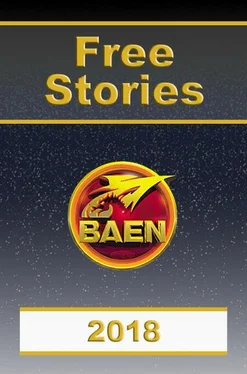

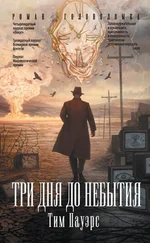
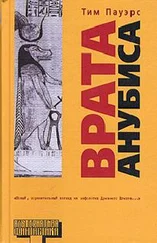

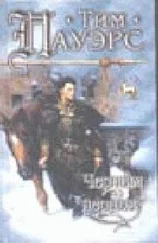
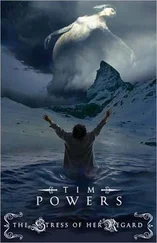

![Тим Пауэрс - Последние дни. Том 2 [litres]](/books/393813/tim-pauers-poslednie-dni-tom-2-litres-thumb.webp)
![Тим Пауэрс - Последние дни. Том 1 [litres]](/books/394090/tim-pauers-poslednie-dni-tom-1-litres-thumb.webp)
![Тим Пауэрс - Последний выдох [litres]](/books/402145/tim-pauers-poslednij-vydoh-litres-thumb.webp)